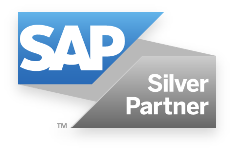How much does SAP Business One cost? How to budget for implementation

As one of the most powerful and scalable enterprise resource planning tools (ERP), SAP Business One has proven very popular with companies thanks to its ability to grow to suit the needs of developing businesses.
Because SAP B1 is so user-focused and customisable, the cost of implementation varies depending on the size of the business and the level of service it requires. In order to successfully bring SAP B1 to your business then, there are certain factors that must be taken into consideration.
The cost of licensing
In order to cater for as wide a market as possible, SAP B1 has three licensing tiers that should suit businesses of almost any size.
The comprehensive Professional license has a monthly fee starting at £57, while a limited license with less functionality starts at £42 a month. SAP Business One is available as a perpetual license if you’d prefer the one off cost of licenses.
More recently, SAP B1 has introduced what they are calling a Starter Package that will better suit SMEs and start-ups, as it comes with a one-time price tag of £34 and out-of-the-box functionality. This option is only made for one to five users though, so functionality and scope are exceptionally limited compared to the more scalable higher tiers.
Consider an integration partner
If something as important as implementing an ERP is worth doing, then it’s worth doing it right. That’s why you should also factor in bringing on board a third-party SAP B1 integration partner. They will take on the heavy lifting when it comes to making sure SAP B1 is set up properly and runs smoothly alongside your other processes.
Because every SAP B1 implementation is unique, costs are likely to vary depending on your needs. Some services that implementation partners will provide as part of the initial set-up include:
- Business Blueprinting
- Intensive training to aid the implementation
- User training
- Form design
- Prototype creation
- Automatic data transfer
- Support during start phase
- Post Go live support
More generally, the cost from an implementation partner is likely to be formulated based on the scope of the functional areas that you wish to deploy, such as:
- Sales
- Purchasing
- Financials
- Warehouse management
- Production
- Third-party system integration and add on products
Finally, the complexity of your business and its operations also play a part in the quote you will receive. The number of locations you have, such as warehouses, and their spread around the country is one element, as is any facilities that you have operating overseas. The number of currencies that you deal in is also likely to have an impact.
Choose your partner wisely
When looking to bring onboard an ERP integration partner, it’s vitally important that you find the right people for the job.
Experience is the key. An inexperienced implementation partner may be able to offer a lower price, but the counterpoint could be an inefficient, longer-lasting implementation that actually ends up increasing costs through lost time. In a worse case scenario, you could end up with a partner that has bitten off more than they can chew, leading to a frustrating and haphazard process.
When looking for the right implementation partner, you should look for someone that offers a formal implementation strategy, a guide to the stages of the project and what to expect at each step. A partner with a strong level of experience will also be able to minimise risks by leveraging industry best practice to ensure a successful project for all involved.
Lastly, if a potential partner doesn’t offer the comprehensive list of services then the chances are that you’ll also end up working with extra businesses to provide supplemental elements – including third-party software integration, customer support, customisation, and hosting among others. In these cases you are entirely at the mercy of the original implementation partner to choose vendors, and the price will increase as more vendors become involved.
Finding an SAP B1 implementation partner to tackle the project holistically is the best bet when it comes to efficiency and control over the project.
It’s about lifetime ROI
Anybody looking to implement a tool like SAP B1, or any ERP for that matter, is going to know upfront that it is not going to come with a small cost. Such high spend can prove daunting, it’s understandable, but you need to consider investment in SAP B1 from a macro, rather than a micro, perspective.
The true cost of implementing SAP B1 can only really be measured in terms of the benefits it has to the business over the course of its lifetime.
It’s not about the upfront costs, the licensing, or the cost of working with someone to bring it into the organisation. It’s about the long-term improvements that it brings to your processes, the money and time it lets you save.
Ultimately, it’s about and the changes in practices that lead to better customer retention, repeat business, and an unquestionable ROI.
If you’d like to discuss how APH can help your company with a SAP Business One installation get in touch.

